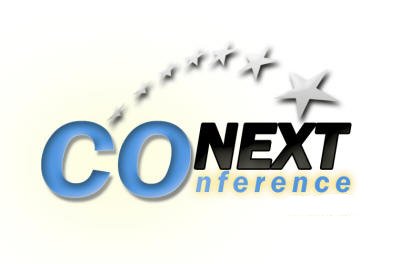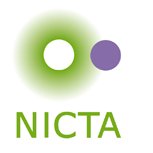ReArch 2010November 30, Philadelphia, USA |
 |
Re-Architecting the Internet
The organizing committee is delighted to invite you to ReArch ‘10, co-located with CoNEXT 2010 in Philadelphia, USA.
Motivation
The Internet architecture has been remarkably successful in allowing a planet-scale internetwork to form. However, this architecture is losing its original simplicity and transparency as new classes of applications, business models, security mechanisms, scalability enablers and operational and management requirements give rise to point solutions that extend the architecture without regards to its original design principles.
Although these developments are necessary in the short term to allow the Internet to continue to operate under the present economical, technical and social conditions, in combination, they have significantly reduced the potential for longer-term evolution of the Internet architecture. This loss of flexibility is already being felt as the number of Internet nodes grows by another order of magnitude.
ReArch’10 - the third instance of this workshop since its very successful debut at CONeXT 2008 - will discuss the underlying problems of the Internet architecture and protocols and debate how we might fix them in a way that regains us the original architectural simplicity and clarity of the Internet for another 30+ years.
This workshop solicits original, high-quality papers that analyze and discuss ideas for a new Internet architecture, including specific improvements to current Internet protocols, especially at the internetworking, transport and application layers, new internetworking components that integrate into the existing architecture and ideas for clean-slate internetworking architectures.
As an experiment for the 2010 workshop, we encourage submissions that identify the core of an architectural disagreement between the co-authors, perhaps in point-counterpoint style. To be accepted, such papers must meet the same quality criteria as traditional papers. If more than one co-author of such a paper can attend the workshop, a panel format will be used. Otherwise, one co-author will be expected to speak for both sides of the argument.
Topics
ReArch’10 covers all aspects related to the current and future Internet architecture including, but not limited to, the following impact:
- New networking paradigms
- New architecture proposals and their implications for research and operations
- New protocols to address specific architectural limitations
- Studies of interactions between stakeholders of the Internet and the architecture itself
- Design principles and interfaces to accommodate the diverse interests of stakeholders in the architecture
- Principles of evolving future architectures
- New business and policy models
- Tension between security and evolvability of an architecture
- Novel approaches to traditional networking problems such as traffic engineering, congestion control, availability, routing, mobility, etc.
- Measurements and analyses that characterize and quantify architectural limitations
- Discussions on interworking with the existing Internet and deployability
Papers that present interesting, fresh ideas at an early stage are more suitable for this workshop than highly polished results or incremental refinements of previous work. Submissions may include position papers that point out new directions and attempt to stimulate discussion; position papers should be clearly marked as such. Submission must be original and not already be published or submitted for publication elsewhere. The proceedings of the workshop will be published in the ACM Digital Library.
PDF version of the CFP is available here.
Submissions
Submitted papers must be at most six (6) pages long, including all figures, tables, references, appendices, etc. They must be formatted according to the standard alternate ACM double column format except that all text must use a font size of 10 points or larger. Longer submissions will not be reviewed. The review process is single-blind.
You are strongly encouraged to use the modified 10pt ACM sig-alternate-10pt latex template available here.
Papers can be registered and submitted through EDAS.
Camera-ready guidelines available here.
Important dates
| Abstract Submission | |
|---|---|
| Paper Submission | |
| Notification of Acceptance | |
| Camera-ready Papers Due | |
| Workshop | November 30, 2010 |
Committee
| TPC co-chairs | Bob Briscoe | BT Group, United Kingdom |
|---|---|---|
| Peter Steenkiste | Carnegie Mellon University, USA | |
| Technical Program Committee | Rui Aguiar | University of Aveiro, Portugal |
| Bengt Ahlgren | SICS, Sweden | |
| Aditya Akella | University of Wisconsin-Madison, USA | |
| Mark Allman | ICSI, USA | |
| Jun Bi | Tsinghua University, China | |
| Bob Briscoe | BT, United Kingdom | |
| Brian Carpenter | The University of Auckland, New Zealand | |
| Costas Courcoubetis | Athens University of Economics and Business, Greece | |
| Philip Eardley | BT, United Kingdom | |
| Lars Eggert | Nokia Research Center, Finland | |
| Kevin Fall | Intel Research, USA | |
| Peyman Faratin | TBA (formerly MIT, USA) | |
| Ivan Gojmerac | Telecommunications Research Center Vienna (ftw), Austria | |
| Janardhan Iyengar | Franklin and Marshall College, USA | |
| Katsushi Kobayashi | National Institute of Advanced Industrial Science and Technology, Japan | |
| Andrew McGregor | Allied Telesis Labs, New Zealand | |
| Akihiro Nakao | University of Tokyo, Japan | |
| Pekka Nikander | Ericsson Research Nomadiclab, Finland | |
| David Oran | Cisco Systems, USA | |
| Craig Partridge | BBN Technologies, USA | |
| Idris Rai | Makerere University, Uganda | |
| George Rouskas | North Carolina State University, USA | |
| Mikko Särelä | Nomadiclab, Ericsson Research, Finland | |
| Peter Steenkiste | Carnegie Mellon University, USA | |
| James Sterbenz | University of Kansas, USA & Lancaster University, UK | |
| Christian Vogt | Ericsson Research Silicon Valley, USA | |
| Tilman Wolf | University of Massachusetts, USA | |
| Xiaowei Yang | Duke University, USA | |
| Lixia Zhang | University of California at Los Angeles, USA |







